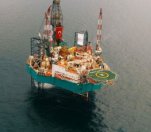Oruç Reis sysmic research vessel. (Photo: AA)
Turkey is ready to sit at the negotiating table with Greece and discuss all regional issues which have led to an escalation between the two neighbors, Presidential Spokesperson İbrahim Kalın said yesterday (July 28).
Ankara has suspended its hydrocarbon exploration activities in the eastern Mediterranean after President Recep Tayyip Erdoğan told his aides, "Let's be constructive and put efforts on hold for some time," Kalın said during a TV program on CNN Türk.
"In line with the instructions of our President, we are ready to discuss all issues; the Aegean, continental shelf, islands, airspace, research and screening efforts, and Eastern Mediterranean along with other bilateral matters with Greece without any precondition," he said.
The spokesperson went on to say that Greece was an important neighbor and regional disputes were triggered by loopholes in the law with regards to islands in the Aegean, the continental shelf and exclusive economic zone in the Eastern Mediterranean.
"There is no international legal definition regarding these," he said, adding the international maritime law suggested such disputes should be resolved between conflicting countries.
The spokesperson said the issue of the island of Cyprus was linked with the regional dispute, therefore both Turkish and Greek Cypriots should start negotiations for the disputed territories, and reiterated that Turkey was willing to turn the Eastern Mediterranean into a region of peace, not conflict.
Greece "overreacted to Turkey's NAVTEX"
Referring to Turkey's recent NAVTEX in the region, he said that Greece overreacted as if the Ankara administration was planning to invade the island of Meis, or Kastellorizo, however, the hydrocarbon research activities would be held 180 kilometers (112 miles) off the island.
After Turkey issued NAVTEX on July 21, Greece dispatched a fleet to the region, which was followed by the gradual withdrawal of Turkey's warships. The Oruç Reis sysmic vessel has not started sysmics surveys despite NAVTEX, which will expire on Sunday (August 2).
When asked if Turkey's seismic research activities in the Eastern Mediterranean would be halted for a month, he said the negotiations would continue and President Erdogan instructed authorities to wait for a while and see how talks would go.
According to the senior official, German Chancellor Angela Merkel played a constructive role following the NAVTEX crisis between Ankara and Athens, stating she sought to refrain from steps that might escalate the regional problems.
Defense Minister: Eastern Mediterranean projects will fail without Turkey
Any energy project that proceeds in the eastern Mediterranean without Turkey's participation is "doomed to fail," Minister of National Defense Hulusi Akar said yesterday.
"Turkey, as a country with the longest continental coastline in the eastern Mediterranean has sovereign rights in its maritime areas," Akar said during a virtual conference hosted by the Washington-based Turkish Heritage Organization.
"Turkey's hydrocarbon-related activities in the eastern Mediterranean are completely based on her legitimate rights and international law. Energy projects in the eastern Mediterranean that exclude Turkey from the energy equation are doomed to fail. We strongly believe peace and stability in the region can be achieved through dialogue," he added.
Turning to Libya where Ankara has been supporting the UN-recognized Government of National Accord (GNA) in Tripoli, Akar said Turkey's humanitarian and military aid would continue resolutely.
Last November, Turkey and the GNA signed landmark pacts on military cooperation and boundaries in the Mediterranean.
The maritime pact, effective from December 8, asserted Turkey's rights in the Eastern Mediterranean in the face of unilateral drilling by the Greek Cypriot administration, while maintaining that the Turkish Republic of Northern Cyprus (TRNC) also has rights to the resources in the area. (VK)




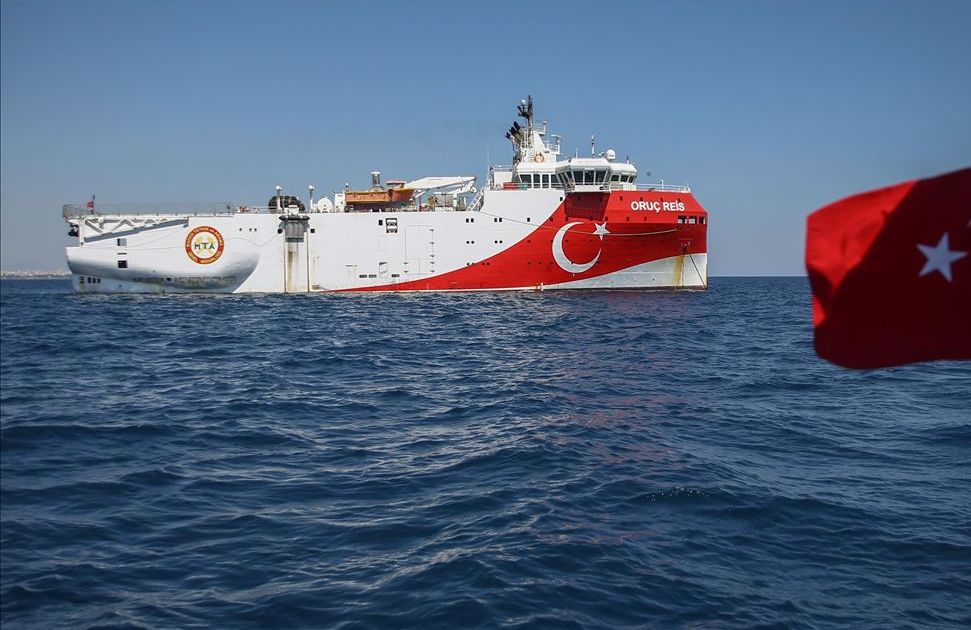
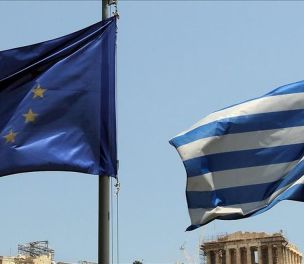
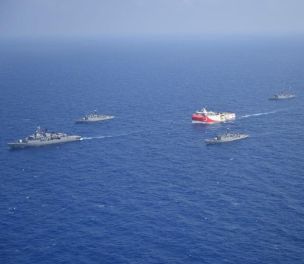
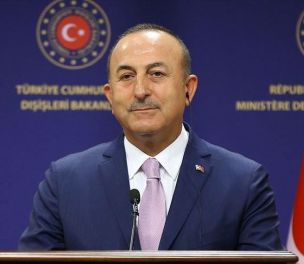
-132.jpg)

